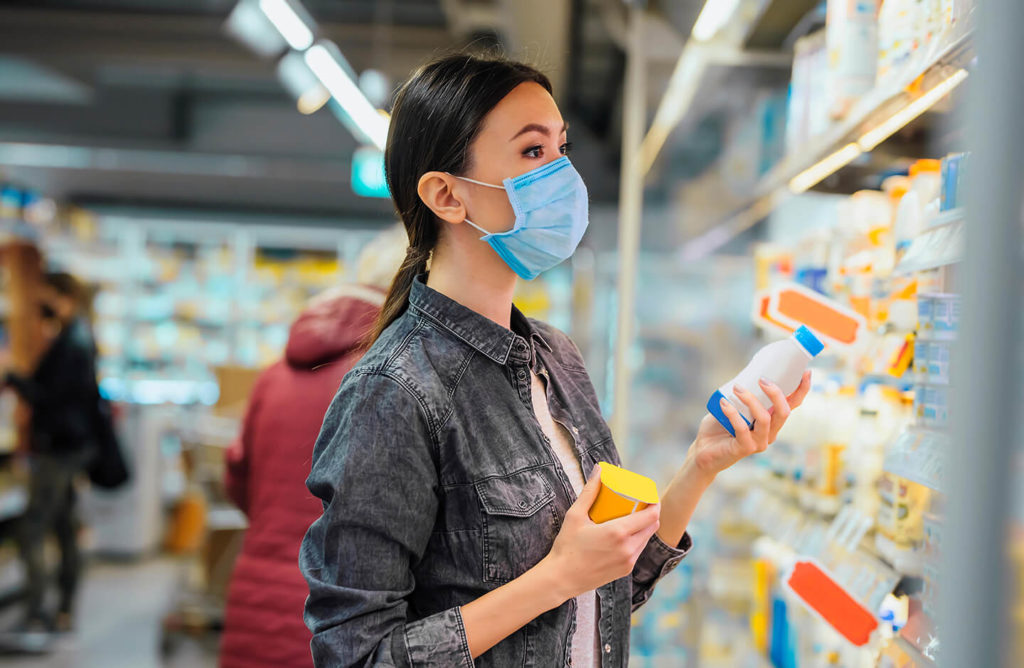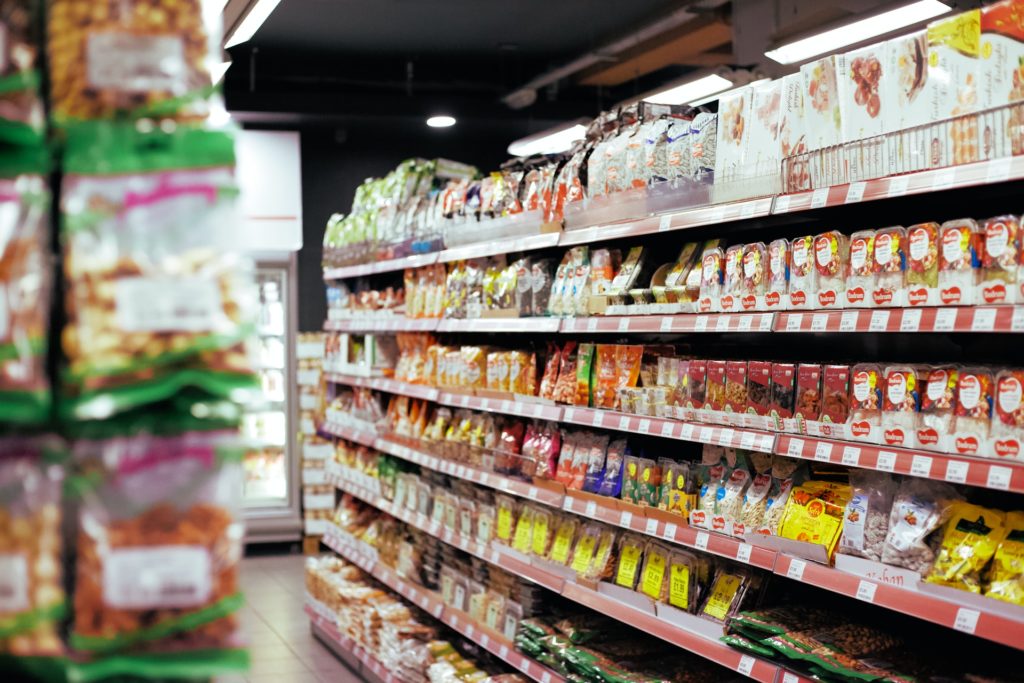
The impact of COVID-19 is being compared to war-time recession and other historic economic downturns. Retailers and suppliers are evaluating these events to help them navigate the pandemic to come out on their feet and ahead of their competitors. A cornerstone in this process is how to maintain and in some cases re-build consumer loyalty for their brands. A recent Inc. article quoted Amazon’s Jeff Bezos when he rolled out Amazon Prime in 2004 saying, “In the long term, we hope to earn even more of your business.”
At the time, Amazon took a risk that the Prime subscription program would simplify the online shopping experience for its customers and that they would be willing to pay for it. They were able to offer meaningful value by cutting out the frustrations associated with early on-line buying technologies and eliminating the hassle of having to go out to shop. The value in this service, it was hypothesized, would lead to brand loyalty and of course, more business for Amazon. Amazon has continued to amp up Prime’s value proposition over the years and today, Amazon’s 150 million Prime subscribers are their most loyal customers.
The importance of focusing on the customer and their intrinsic needs is at the root of how retailers and suppliers need to pivot their models as they face the future in their own businesses and as business partners. Amazon was a pioneer in the subscription space using the model to generate brand loyalty. Others can learn from their example adding value in new ways post COVID-19. This week, Walmart US announced that they will launch their own subscription model, Walmart Plus to better service their customers. With a drastic and pandemic-induced increase in e-commerce sales, Walmart will leverage the program to meet consumers at a new level to deliver on their evolving needs for speedy, safe, and value-added services.
Customer loyalty post-COVID-19 is not only about price, loyalty program points, premium services, or a higher quality product. While these attributes are all important, the pandemic has birthed a new culture that some are calling a Relationship Economy according to Franchise.com. In effect, our world has become so high-tech and ‘no touch’ due to social distancing that people are searching for a sense of belonging and community as well as longing for higher purpose in their own lives. Retailers and suppliers focused on sustainable and long-term growth will invest in the creation of meaningful relationships with their customers to build loyalty instead of focusing on the transaction. In short, relationships will matter moving forward, not only with the consumer but between retailer and supplier partners too. This sentiment is already affecting business relationships given the necessity of collaboration during the pandemic, and in how consumers evaluate the retailers they frequent and the supplier brands they choose to purchase on the backside of COVID-19. In a recent Forrester’s CX Index, 87% of Canadian customers who say they ‘felt valued’ plan to stay with the brand. Furthermore, 84% of customers who felt valued said they plan to increase spending with the brand, and 86% will advocate for the brand. How an experience makes customers feel has a greater influence on their loyalty to a brand than efficacy or convenience.
Actions Speak Louder than Words
The pandemic exposed big business vulnerabilities and global economic frailties. Consumers are looking for a fix to this and they will patronize companies that provide a ‘way out’ or a path to a better world. CSR (Corporate Social Responsibility) is an important pillar as retailers and suppliers look to align with causes that give back to the communities in which they operate and resonate with the values of consumers. A focus on doing what is right matters to consumers, and businesses are trying determined to leave their mark as they strive to make a difference in climate control. For example, PepsiCo and General Mills are partnering with Future Farmers of America (FFA) to provide scholarships, grants, and educational opportunities (regenerative farming techniques, leadership training and exposure to agricultural expertise) to strengthen the agricultural value chain. Diageo will roll out a first ever 100% plastic free spirits bottle made entirely from sustainably sourced wood in early 2021. Agramo, a Chilean start-up partnering locally with big brands like Unilever and Purina has launched a flexible refill model allowing low income shoppers who can’t afford to buy in bulk, to purchase smaller amounts of product without incurring a ‘poverty tax’. Agramo is also trialing an alternative model in ethnic and socio-economically diverse neighborhoods in New York City. In partnership with Colgate-Palmolive, Clorox and Ecologic Solutions, the touchless vending machine refill-based model will allow consumers to pay for product minus excess packaging. Algramo co-founder and CEO Jose Manuel Moller Dominguez is quoted by GreenBiz, “These pilots will be invaluable in proving the viability and superiority of refill models that eliminate the need for single-use packaging and address social and economic barriers to more sustainable options.”

Channeling Health & Safety to Draw in Customers
One of the first opportunities for companies to build trust and loyalty with their customers during COVID-19 was through the implementation of health and safety measures in their stores and manufacturing plants. Those retailers and suppliers that took responsibility for or pivoted their strategies to support the shortage of available cleaning supplies and PPE were at the forefront and now, companies are benchmarked against this competency. L’Oréal, Molson Coors, and others adapted their manufacturing operations earlier this year to make hand sanitizer to meet excessive demands. Going forward, proof of good hygiene, safety, and the well-being of employees and customers will continue to be a defining factor in the ability to retain consumer trust. Consumers will go where they feel safe and where hygiene practices are overtly maintained. Companies will also be scrutinized as people begin to return to work, especially in relation to well-being initiatives focused on mental health. Colgate UK backs a mental health campaign in a partnership with Mind, a leading mental health charity. Colgate hopes it can help raise the awareness and services available to people with mental health issues, especially for those whose mental health worsened because of COVID-19 lockdowns.
An Appeal to What Matters Most: Togetherness
In a recent article by MediaPost, Chairmen and CEO of Coca-Cola, James Quincy was quoted as saying that Q2 was “the toughest and most complex quarter in Coca-Cola history…”. Struggling through a six month period with a beleaguered food service business and cancelling their extensive social media presence due to racism and to promote transparency and accountability for content by social media platforms, Coca-Cola launched a global ad campaign on YouTube called The Great Meal, which focused on a theme of unity. The ads highlighted 13 families around the world who are eating together, symbolic of the fact that ‘we are all in this together’. Void of any Coke brand reference other than family members reaching for a bottle of Coke, the spot spread a message of empathy and hope. Other ad campaigns used humor to poke fun at the whimsical realities of COVID-19. Old Spice played off the inability to get a haircut offering ‘isolation hair-cut’ tips. Budweiser’s iconic Whassup? campaign was rejuvenated using a video chat to connect friends who recounted their COVID-19 habits like snacking and rerunning old sports games before closing with serious message to check-in on the people you care about. This ad leans on technology to create a linkage with consumers, focusing on what we all have in common while in quarantine instead of a blatant product message. Empathy registering messages will likely continue post-COVID-19. David Steinberg, President of Zeta, digital marketing agency in a recent Drum article posits, “Companies that have more longer-term outlooks are going to look at this sort of pivot to empathy, and they’re going to continue with it.”
Building Digital Linkages with the Consumer
Building emotional connections with consumers is a must as consumers are looking for an experience instead of a purchase. However, creating relationships and curating experiences is easier the more a business knows about a consumer. Use of social media, loyalty programs and e-commerce platforms will allow digital mapping of a consumer’s interests and purchase patterns that will strengthen businesses’ ability to make individual and customizable connections with their shoppers to lead them along the path to purchase. Programs and messaging can then be specific to an individual instead of a one size fits all approach. In the next edition of InFocus, our feature article will examine how retailers and suppliers are refashioning their loyalty and rewards programs to be more mindful of consumer demands and adding value in areas that appeal to their shoppers.
Advantage Perspective
The focus on relationships and loyalty also carries over to retailer and supplier relationships. After all, the trends seen among consumers also ring true for business leaders and their teams because COVID-19 has affected us all. More emphasis between retailers and suppliers has been placed on collaboration during the pandemic due to necessity, and this will continue to be important in the new world. Partnership is the only way forward as the challenge of delivering sustainable and adaptable consumer solutions demands a shift in retailer-supplier dynamics. Building and sustaining trust and loyalty between business partners is also an imperative to reshaping future customer propositions that will benefit all parties. Trust begins with showing empathy, patience and understanding pandemic experiences. Recalibration of strategies will require flexibility in the supply chain as processes and metrics pivot to reflect business realities. Agility along the value chain will enable businesses to adapt to shifts in consumer dynamics and promote growth in new channels through the effective leveraging of digital capabilities. The adoption of new, flexible, and agile ways of working will also support differentiated offerings by banner, platform, and customer. Neither agility nor flexibility is possible without deeper relationships built on collaboration and sustained loyalty gained during the pandemic that we have all experienced together.
Sources
- The 9 Simple Words That Made Amazon a Trillion Dollar Company | Inc.com
- The dangers of going dark: How your marketing strategy now will affect your market share post-COVID
- Don’t go dark’: Ex Apple and Pepsi exec John Sculley offers pandemic brand-building tips
- Covid-19 likely to alter consumer behaviour permanently
- 4 steps for FMCG firms to create sustainable growth post-COVID
- How Businesses Have Successfully Pivoted During the Pandemic
- Marketers Effectively Connect With Consumers Through Humorous Campaigns
- How Beauty And Fashion Brands Are Responding To COVID-19
- What got us here won’t get us there: A new model for the consumer goods industry
- Jeep, Amazon, Walmart Most Patriotic Brands
- Chile’s reusable container pioneer Algramo is testing refill kiosks in New York
- Coke Confronts A Turbulent Market With Ads That Foster Unity
- Colgate backs mental health campaign by partnering charity Mind to raise funds and awareness
- Naked strips out virgin plastics with 100 per cent recycled bottles
- COMPANIES PARTNER WITH NATIONAL FFA FOR EDUCATIONAL OPPORTUNITIES
- The Covid Effect On CSR And Marketing
- Shaping a Sustainable Post-Covid-19 World: Five Lessons for Business
- The 10 marketing challenges today’s CPG brands are facing
- 6 ways to capitalize on consumer loyalty post COVID
- UAE- Rewarding customer loyalty is pivotal during Covid-19 pandemic
- Walmart introduces Walmart Plus, a new membership program for $98 a year
- Brands Struggling to Stand Out Should Focus on Emotion





